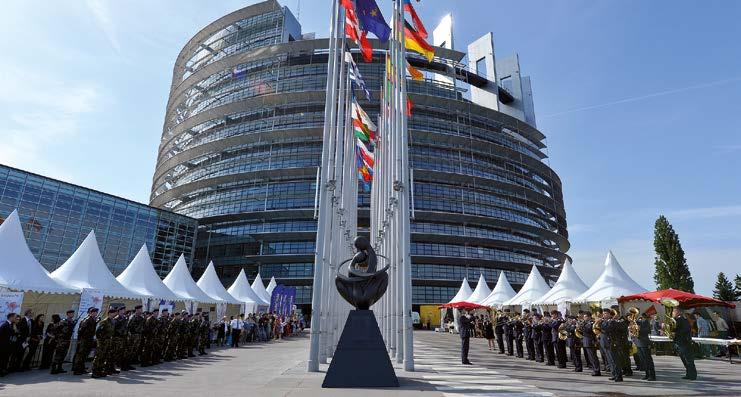documentation
MAIN TOPIC: Migration and refugees
UNESCO 2019 Global Education Monitoring Report (Ed/nc, Paris) On 20 November 2018, UNESCO’s 2019 Global Education Monitoring Report, “Migration, displacement and education”, was released in the presence of the Director-General of UNESCO, Audrey Azoulay, in Berlin. The report shows that the number of migrant and refugee school-age children around the world today has grown by 26% since 2000. It highlights countries’ achievements and shortcomings in ensuring the right of migrant and refugee children to benefit from quality education, a right that serves the interests of both learners and the communities they live in. Excerpt (Foreword of the Report)
those who arrive are pushed or pushing,
“The 2019 Global Education Monitoring
legal or illegal, a boon or a threat, or an
Report has been brought together by a
asset or a burden.
team of international migrants. Four of its members are children of refugees. They
There is both welcoming and rejection.
two global compacts for migrants and
don’t deny that people look at migration –
Some people adjust to their new envi-
refugees show.
and migrants – from different viewpoints.
ronment while others cannot. There are
Their research demonstrates the extent to
those who want to help and those who
For those denied education, marginali-
which education can help open up those
want to exclude.
zation and frustration may be the result. When taught wrongly, education may dis-
perspectives and bring greater opportunities for all.
Thus, around the world, we see migration
tort history and lead to misunderstanding.
and displacement stirring great passions. For migrants, refugees and host communi-
Yet there are decisions to make. Migration
But, as the Report shows us in the form of
ties, there is the known and the unknown.
requires responses. We can raise barriers,
so many uplifting examples from Canada,
All that some people know, however, is
or we can reach out to the other side – to
Chad, Colombia, Ireland, Lebanon, the Phil-
deprivation and the need to escape from
build trust, to include, to reassure.
ippines, Turkey and Uganda, education can also be a bridge. It can bring out the best in
it; they don’t know whether there will be opportunity at the other end. In recipient
At the global level, the United Nations has
people, and lead to stereotypes, prejudices
communities, people may not know wheth-
worked to bring nations together around
and discrimination being discarded for
er and how their new neighbours, wearing
durable solutions to migration and dis-
critical thinking, solidarity and openness.
different clothes, having different customs,
placement challenges. During the UN Sum-
It can offer a helping hand to those who
and speaking with a different accent, will
mit on Refugees and Migrants in 2016, I
have suffered and a springboard to those
change their lives.
called for investing in conflict prevention,
who desperately need opportunity.
mediation, good governance, the rule of Migration is characterized by both order and
law and inclusive economic growth. I also
This Report points directly to a major chal-
disorder. Societies often strive to manage
drew attention to the need for expanding
lenge: How can teachers be supported to
population movements but nonetheless
access to basic services to migrants to
practise inclusion? It offers us fascinating
may face unpredictable inflows. Such move-
tackle inequalities.
insights into humanity and the age-old phenomenon of migration. I invite you
ments may create new divisions, while others have demonstrably benefited both
This Report takes that last point further
to consider its recommendations and to
source and destination countries.
by reminding us that providing education
act on them.”
is not only a moral obligation of those in In migration flows, we see both will and
charge of it, but also is a practical solution
The Right Honourable Helen Clark, Chair
coercion. Some people move proactively
to many of the ripples caused by moving
of the GEM Report Advisory Board
to work and study while others are forced
populations. It must be, and should always
to flee persecution and threats to their
have been, a key part of the response to
livelihoods. Recipient communities and
migration and displacement – an idea
politicians may argue interminably whether
whose time has come, as the texts of the
> Web: The Report: https://bit.ly/2PDrdep
37

















